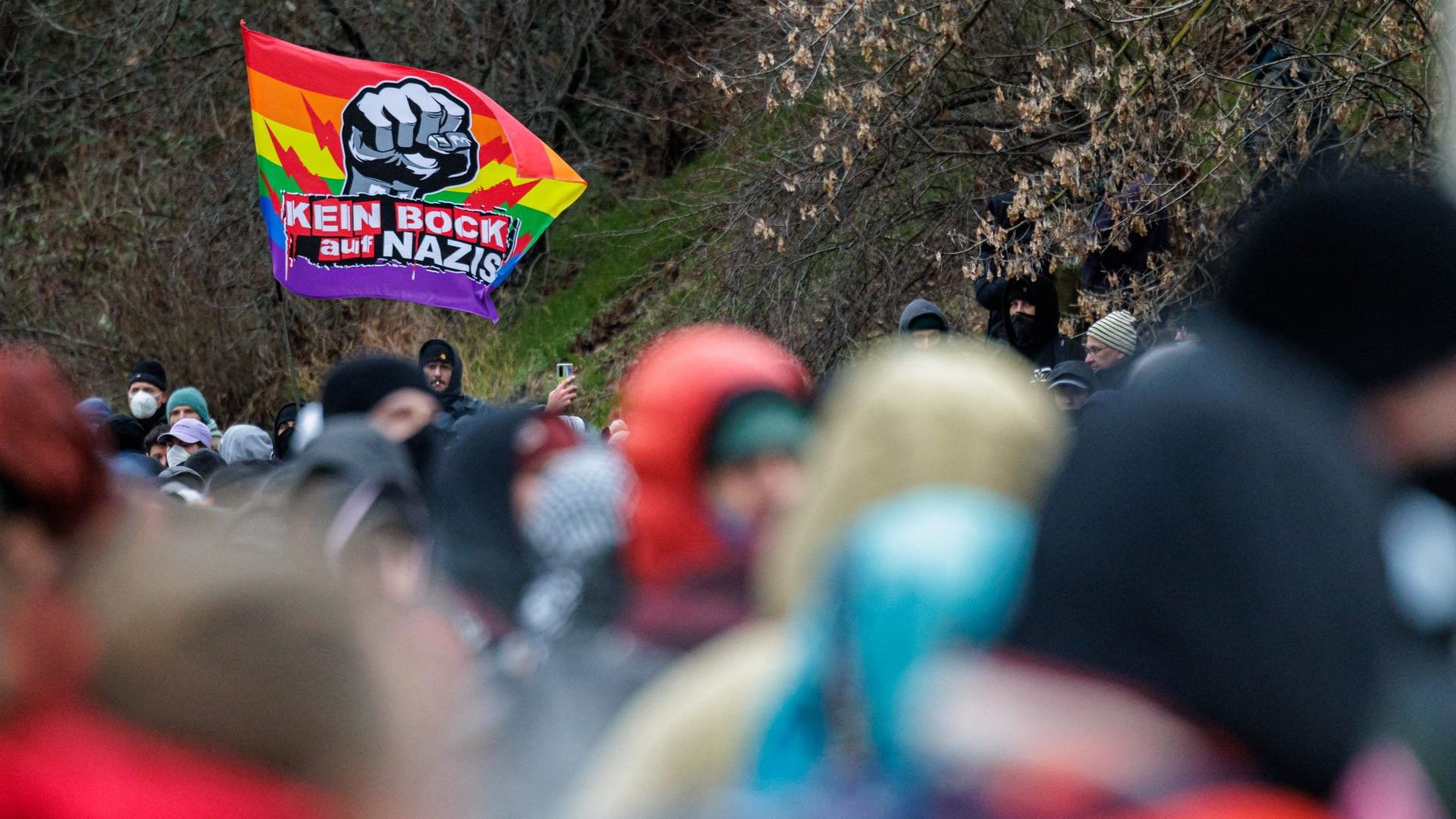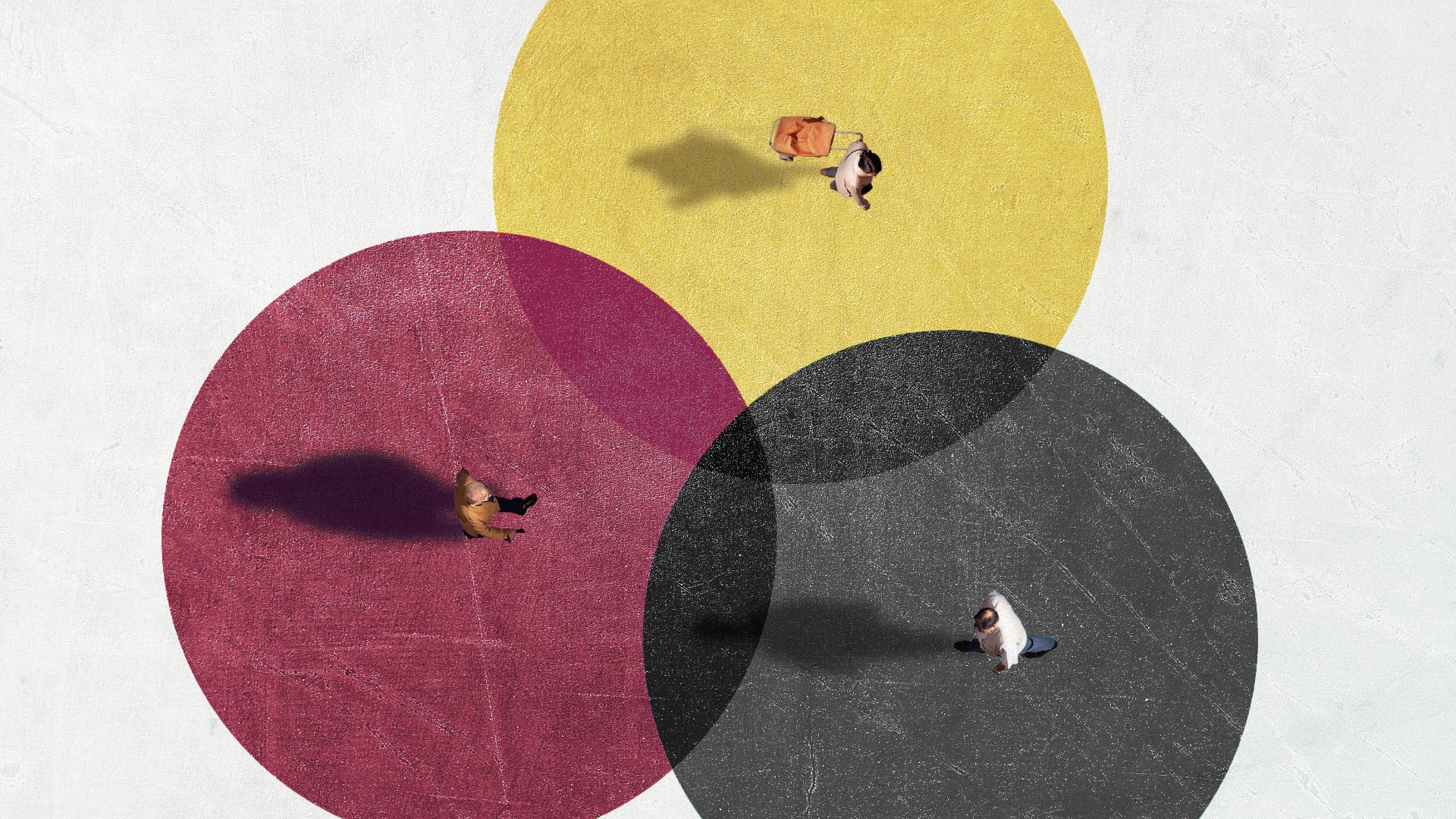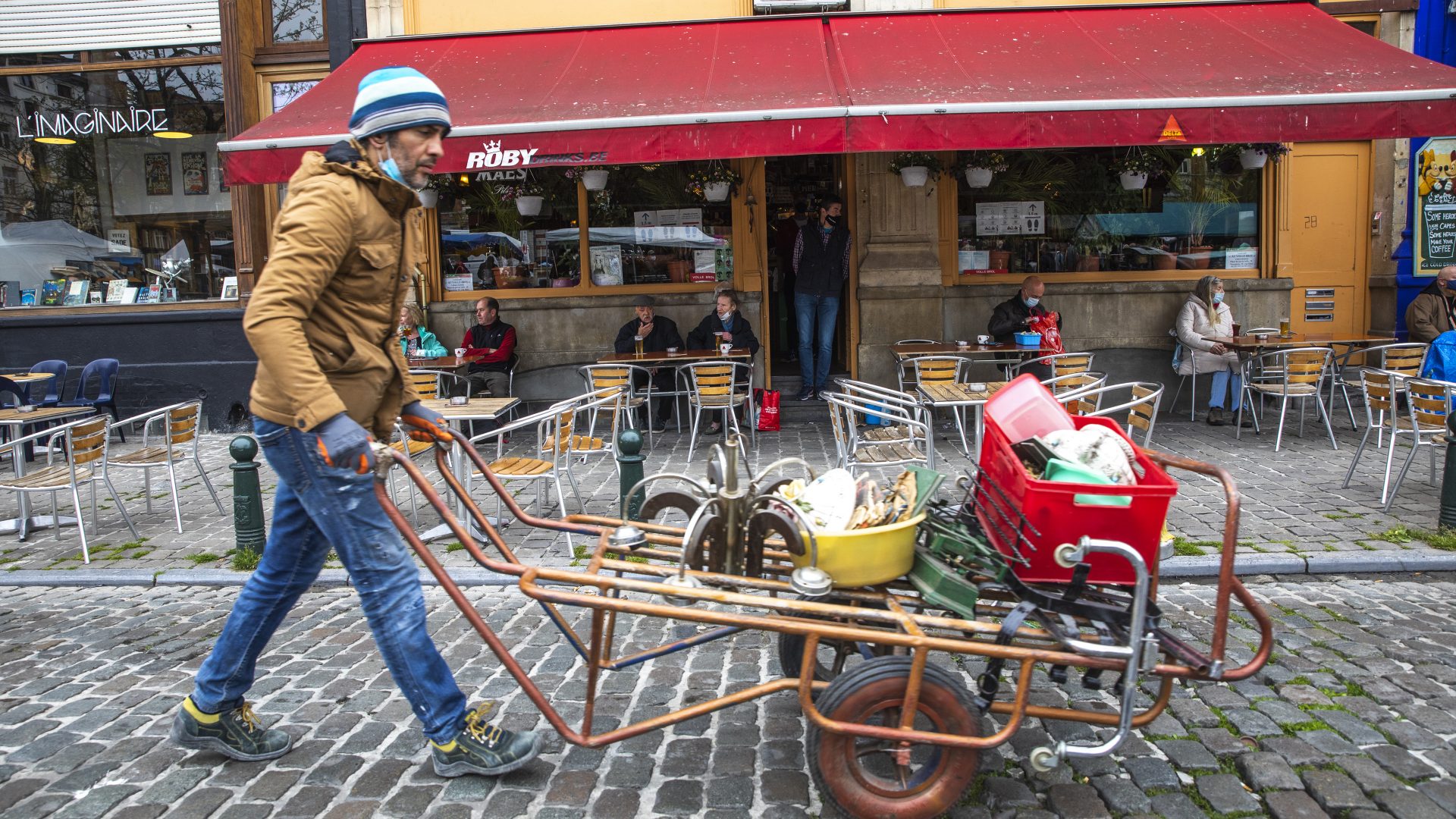Riesa is a little town surrounded by farmland, but the name means “giant”. The story goes that a giant sat down beside the River Elbe, pulled off his boots and turned around, creating the hill on which the settlement was founded.
At the weekend, there was no jolly giant in Riesa, but a gigantic organisational effort to disrupt the national conference of Alternative für Deutschland (AfD), the populist neo-Nazi party. Opinion polls by PolitPro put the AfD just one percentage point behind the conservative CDU/CSU here in Saxony, and a close second nationwide in the campaign for the February 23 general election.
Organised by the umbrella group Widersetzen (opposition), as many as 15,000 protesters from all over Germany converged on Riesa. Their aim: to block the access roads and, when the delegates finally convened, to drown out the conference with loud political rappers and post-punk music.
A heavy – and heavy-handed – police presence aimed to stop them.
Before first light the protestors began arriving, and they sat in the street, to block the access roads leading to the AfD conference centre. Police used teargas and water cannon on the peaceful demonstrators. In one action a member of the regional parliament, Die Linke (Left party) representative Nam Duy Nguyen, was knocked unconscious by a police officer.
After the blockades were forcibly removed, the AfD conference began two and a half hours late, and with a smaller attendance than expected. Party leader Alice Weidel set the tone, fresh from her latest conversation on X with Elon Musk. Musk has built a “gigafactory” in Brandenburg, employing 12,000 people. He knows that Saxony’s Ore Mountains contain lithium and rare earth deposits, so it is not surprising that naked commercial self-interest propels him to support the populist AfD and to call the social democratic chancellor Olaf Scholz “a fool”.
The AfD unanimously voted for Weidel to be their candidate for chancellor.
Emboldened, Weidel dropped the euphemisms and let rip. “We shall tear down all the wind turbines, seal the borders and deport all non-German foreigners. Yes, remigration!” she declared to great applause. Restricting abortion rights and tax reform were also high on her agenda.
Outside the conference hall, 15,000 demonstrators roared, in German and Italian, that they were antifascists and that the AfD was a Nazi party. The Zentrum für Politische Schönheit (Centre for Political Beauty) repeatedly let off what sounded like second world war air-raid sirens. The home-made cardboard placards read: “2025 is not 1933”.
People stamped and danced to combat the cold. Hundreds of young people wrapped themselves in foil thermal blankets. Representing the older generations, Grannies and Grandpas against the Right doled out hot herbal teas and home-made biscuits. Soft-centred cookies spelled out the name of their movement in pink icing – Omas gegen Rechts. Others, in crispy gingerbread, were stamped with a more aggressive message: FCK NZIS.
In a carnival atmosphere, the rainbow, red and trade union banners flapped wildly in the freezing storm-force wind. Coloured flares, pyrotechnics and showers of ticker tape exploded over the crowd. People from political splinter-groups usually at each others’ throats danced together and shared their vegan snacks.
The demonstrators came from as far away as Lübeck, Munich and Stuttgart and most of them had braved snow and ice to undergo a four-hour outdoor training course in how to peacefully and legally blockade roads. Many more had taken part in online webinars. Purple-vested Awareness Teams were on hand to help anyone who felt threatened, lost or confused. Parliamentary observers patrolled the streets. Each demonstrator had a randomly generated code number so that they could report incidents anonymously without fear of reprisals from employers or police.
Even the police seemed unusually well-disciplined and low-profile, wearing their Darth Vader-style helmets strapped to their belts. Six officers received slight injuries.
Riesa was a massive showdown. But it turned out to be a showcase for unity, discipline and meticulously planned organisation. Will it be enough to wake up the sleeping giant of Germany’s silent majority to mobilise against the AfD? Six weeks from now, we’ll find out.
Jane Whyatt is a journalist, newsreader and independent TV producer



